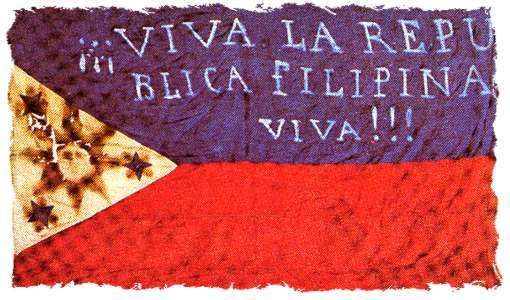
Over a simple breakfast with a bunch of American volunteers (meal consisted of rice, boiled winged beans, vegetarian lumpia (my veggie friend's baon), and fried eggs I requested for — I should remember to bring with me my own fare next time!) high up in the mountains of Asipulo, Ifugao, talk naturally drifted from casual personal introductions to the state of matters.
Our volunteer-host D (whom I shall refer to as Casper (the friendly ghost) had a grandfather who served in the US Navy and was assigned to the Philippines during WWII. In fact, he has with him now an old photograph of his lolo taken from what Casper believes to be a street somewhere in Pasay (also known as Pineda during that time, now a City). Casper's other grandfather was mighty proud of him for working in the Philippines as a volunteer. Casper asked me: "Why is it that the Philippines seems like it has not taken off the way it should? You are not lacking in resources and the people are hard working."
Why, indeed? It looked like an easy question to answer, but which stumped me for a few seconds. It is a political question, I thought, though he may be seeking for answers other than political. At that point, too, I was fully aware that the volunteers can not engage in political talk and reminded myself of it — if the discussion had taken the political turn, I expected very little active participation from our guests.
Same Question
It is not as if we have not asked ourselves the same question. In fact, I believe we like being asked that question, as it opens an arena for punditry from Filipinos from all walks of life.
But there seems to be no single, correct answer. At least not one satisfactory answer that does not lead to a heated argument between the inquirer and the respondents.
Depending on one's location, heritage, cultural or educational background, business and scope of experience, the answers may range from a pretentious soliloquy to a strange series of nods. There, too, is the factor of language where, for instance, everyone tries to engage each other in Tagalog, yet the message risks not being fully understood by those who do not speak it as the discussion deepens.
A Nation of Islands
Stats say we have a total of 170 to 171 dialects, 2 of which are considered official (Tagalog and Bisaya), and 8 co-official, whatever that means. We were taught to refer to these dialects as languages, as each is distinct. The stats, I am sure, do not count Taglish, Textlish, Tag-Il, Baklish and other current phenomenal Tagalog variants determined by class, clique or contemporary customs. There is even a confusion as to what the major linguistic differences are between Tagalog and Filipino.
These dialects (or, languages, rather) are from the 7,100 or so islands that make up the archipelago. Each island is a separate community; each community belonging to a separate district; each district is from a region, and so forth. How the non-Spanish speaking Ilocanos communicated with the Kapampangans and Tagalogs during the Spanish period is still a mystery to me. For sure, there were those who were multilingual at the time, but I imagine it to be rare. The most common words most likely understood by all would probably have been yo, hambre, hombre, mujer, Padre, madre, hijo, donde, among a few. I’m just guessing.
But how did they express to each other, say, the sincere desire and intention to be united in one cause, without giving it away to the guardia civil? They probably couldn't. That's why It took all of 400 years to translate a universal experience to a single action, with the aid of yet another force of circumstance. And then another, and another.
Only In Da Philippines
When we speak about the weirdest of experiences, the strangest of humors, or the most compromising situations, we say "only in the Philippines." Only in the Philippines do we address these situations either in jest, out of frustration or as a matter of fact.
Yet, there are many other only's that we fail to note by heart, perhaps just too many. And, as ever, none spoken to the satisfaction of each Filipino. It seems that the more common our experiences have become, the farther apart we are even as we try to grasp the full understanding of what keeps us together under one flag. And the farther apart we are, the weaker we become as a nation.
(http://en.wikipedia.org/wiki/Languages_of_the_Philippines)
. . . . . . . . . . . . . . . . . . . . . . . . . . . . . . . . . . . .
Scene: Eat Bulaga
Location: Free TV
Date/Time: June 12, 2007, 2:10pm
Q (host): ...mula 1946 hanggang 1961, ginugunita ang Independence day na July 4. Inilipat ito sa June 12...Sino ang dating presidente, na taga Pampanga (emphatic), na nag-proklama nito (na gawin itong June 12)?
A (contestant): (silence)
Q (host): ...taga-Pampanga...dating presidente...sino ito?...binibigyan kita ng limang segundo!
A (contestant): ...si...Diosdado.
Q (host): Sino??!!
A (contestant):...si Diosdado!
Q (host): Sinong Diosdado??!!
A (contestant):...si Diosdado! Diosdado Mac..a..pagal....Arroyo!! Diosdado Macapagal Arroyo!!!
(silence)
Q (co-host): Ano ka ba naman??!! Eto'ng limang libo. Maghanap ka ng ibang kausap mo, ha?


